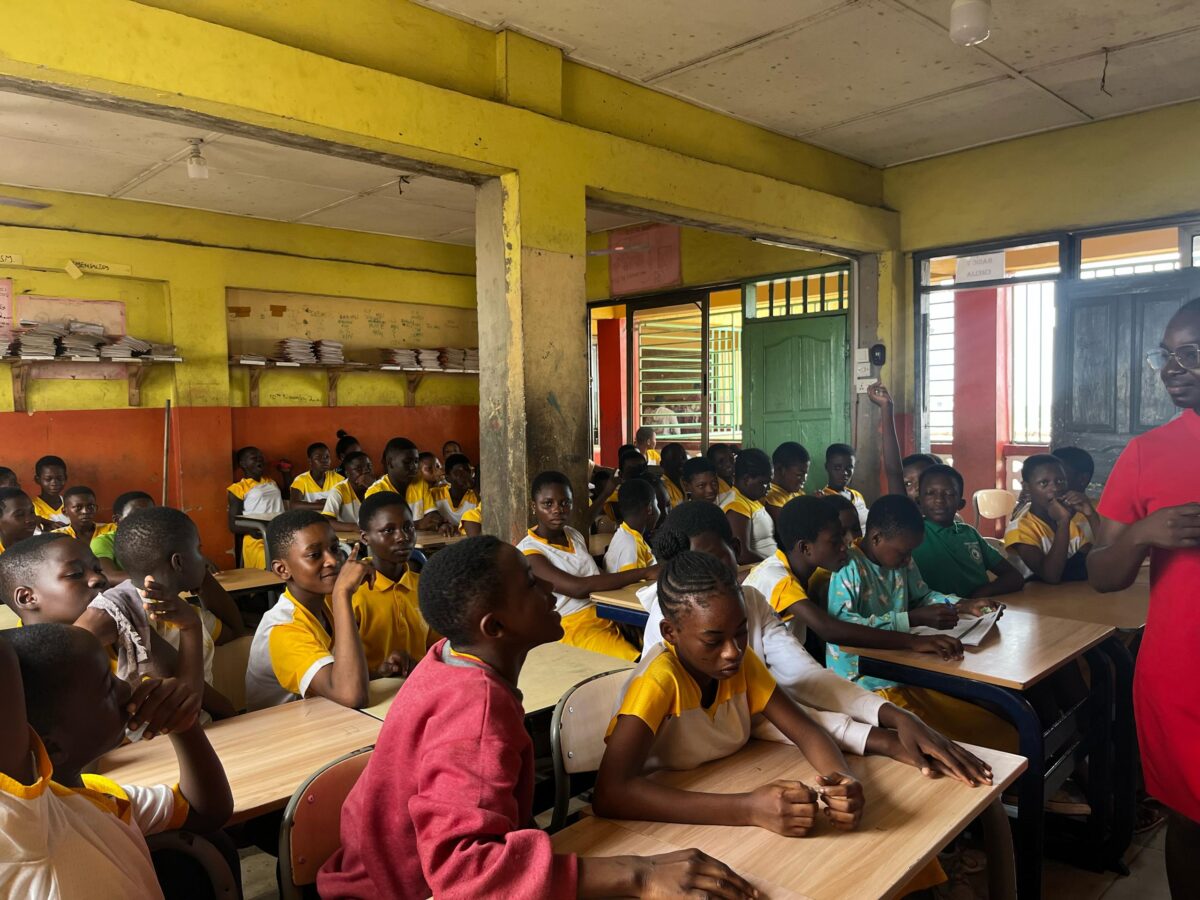
Community Leaders Unite Against Child Labour and Trafficking
December 24, 2024
Theresa Dogbe Writes: Reflecting on 29 Years of Action and Impact
April 1, 2025Young people are at a critical stage of development where information (whether right or not) can shape their choices, dreams and their future. However, traditional methods of delivering messages on key development issues such as mental health, menstrual hygiene and children’s rights, often fail to resonate with these young people. To bridge this gap, we visited Curious Minds International School and Favour School Complex, both in Dansoman, to promote mental well-being among basic school students by equipping them with essential coping strategies and encouraging open conversations about mental health.
The outreach at Curious Minds International School engaged Primary 6 and JHS 1 students, facilitated by Jemima Mornuu, Project Assistant at Curious Minds Ghana. The session began with foundational mental health education, emphasizing its equal importance to physical health. Key topics included:
- Common challenges: Stress, anxiety, depression, bullying, and peer pressure.
- Anxiety recognition: Identifying manifestations like excessive worry, nervousness, and fear of failure.
- Support systems: Guidance on seeking help from parents, teachers, and mental health professionals.
An interactive art therapy activity concluded the session, where students created drawings representing their personal mental health experiences. This exercise served as both an emotional outlet and an assessment tool for facilitators to understand students’ perspectives.

At Favour School Complex, JHS 1 and 2 students were engaged through interactive activities designed to make mental health concepts relatable. The session began with students volunteering to act out different emotions, demonstrating how individuals express feelings uniquely while creating an engaging, relaxed atmosphere for learning.
Following this icebreaker, students first shared their own understanding of mental health before receiving formal explanations about mental wellness and stress management techniques. A lively Q&A session allowed them to clarify concepts before transitioning to the practical component.
For the art activity, students worked in small groups of 2-3 to create drawings representing their perceptions of mental health. Their artwork effectively demonstrated comprehension of key concepts, including:
- The fundamental meaning of mental health
- Practical stress management strategies
- Emotional awareness and expression
This multi-modal approach (kinesthetic, verbal, and visual) ensured students could both understand and creatively apply the session’s lessons.



